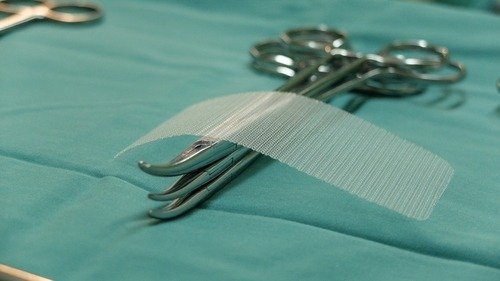Medical devices must be approved by the U.S. Food and Drug Administration (FDA) before they can be placed on the U.S. market. But how are these devices approved? How rigorous (or not) is the process? Some of you may wonder about these things because you have had hernia repair surgery and you trusted the implanted hernia mesh product was safe for the mere fact that the FDA must have reviewed and approved it. To shed light on that very assumption, we provide a look into what the approval process entails by answering a few of your many questions.
- 1. What is considered a medical device?
- 2. Who regulates medical devices in the United States?
- 3. What regulations are manufacturers of medical devices, like hernia mesh, required to comply with?
- 4. Is the FDA responsible if a medical device it approves is defective?

1. What is a medical device?
According to 21 U.S.C. 321(h), is
an instrument, apparatus, implement, machine, contrivance, implant, in vitro reagent, or other similar or related article, including any component, part, or accessory, which is—
(1) recognized in the official National Formulary, or the United States Pharmacopeia, or any supplement to them,
(2) intended for use in the diagnosis of disease or other conditions, or in the cure, mitigation, treatment, or prevention of disease, in man or other animals, or
(3) intended to affect the structure or any function of the body of man or other animals, and
which does not achieve its primary intended purposes through chemical action within or on the body of man or other animals and which is not dependent upon being metabolized for the achievement of its primary intended purposes. 2
Hernia mesh implants used in all hernia repair surgeries are medical devices.
2. Who regulates medical devices in the United States?
The Center for Devices and Radiological Health (CDRH), an arm of the FDA, regulates all medical devices in the United States. Its mission is to “assure their safety and effectiveness.” 1 The Federal Food Drug & Cosmetic (FD&C) Act is the legal authority mandating FDA’s task to regulate medical devices. 3
The CDRH is responsible for regulating medical devices sold in the United States that originate from companies that
- Manufacture
- Repackage
- Relabel, and/or
- Import them.
Hernia mesh devices manufacturers are, therefore, regulated by the CDRH and must comply with relevant regulations.
3. What regulations are manufacturers of medical devices, like hernia mesh, required to comply with?
The approval process comes in many forms at the FDA, and much of it depends on the classification of the device. Each medical device is classified into a specific category and according to that category, certain regulations apply. The CDRH classifies medical devices according to Class I, II, or III. Regulation increases from Class I to Class III. 4 Even though there are specific regulations for each, all must adhere to certain basic controls.
3.1 What are the classifications of medical devices?
As mentioned, classifications range from Class I to Class III.
Class I. Class I devices are subject to the general controls. The potential for harm is deemed low for this category. The designs are usually simple and can include such things as bandages to hand-held surgical instruments.
Class II. Class II devices are subject to more than general controls because they are deemed to have the potential to cause some harm. Stronger regulations may include special labeling requirements, post-market surveillance, and performance standards. Examples include powered wheelchairs or surgical drapes.
Class III. Class III devices are deemed as having the highest potential for harm, therefore, they are regulated by the highest level of controls. These devices can include things like replacement heart valves to implanted to hernia mesh implants.
3.2 What are the basic regulations manufacturers must comply with?
Regulations and controls of medical devices increase from Class I to Class III. Basic requirements for each include:
- Establishment Registration requires all domestic and foreign manufacturers to register their establishments with the FDA. 5
- Medical Device Registration and Listing requires manufacturers to list their devices with the FDA. 6
- Premarket Notification 510(k), if required, typically applies to most Class I and Class II devices but there are many exemptions. 7
- Premarket Approval (PMA), if required, applies to high-risk Class III devices and requires the submission of clinical data that supports the claims made for the device8
- Investigational Device Exemption (IDE), if applicable, for clinical studies allows some investigational devices to be used in a clinical study so that data can be collected to support (or not) the device’s effectiveness and safety. 9
- Quality System (QS) regulation define the methods that can be used in facilities used for designing, manufacturing, packaging, and, among other things, labeling medical devices. 10
- Labeling requirements include what can and cannot be provided on the label of the medical device as well as in it informational literature that accompanies the device. 11
- Medical Device Reporting (MDR) is required whenever a device malfunctions or causes serious injury or death. When an MDR is reported, the FDA investigates and may recall a device either temporarily or permanently.12
4. Is the FDA responsible if a medical device it approves and regulates is defective?
No, the FDA is not held accountable for the medical devices it approves and regulates. Some may think the federal agency should be held responsible because many of its approved hernia mesh products have been and continue to be found defective. Many of these products have made their way into the market because — even though they are typically Class II medical devices — they are approved via the 510(k) clearance process due to claims the device is substantially equivalent to one already on the market. The 510(k) process is less stringent than the Premarket Approval process, which requires clinical studies proving the claims made of the devices.
Ultimately, when dealing with a defective mesh product, the manufacturer of the hernia mesh device and designer (if different from the manufacturer) are held liable for injuries and/or death.
But also, the FDA’s role does play a part in a lawsuit against a manufacturer. Evidence regarding who knew what and when that person(s) knew what can be found in FDA reports. Having a personal injury lawyer who can research and analyze FDA reports will be key to any lawsuit against a hernia mesh manufacturer.
At Shouse Law Group, our personal injury attorneys are knowledgeable and armed with insight and experience. We are currently accepting hernia mesh lawsuits throughout the United States. If you believe you have been injured by a defective hernia mesh product, contact our office today either online via the form below or by phone.

References
- U.S. Food & Drug Administration. Is Your Product Regulated. Last updated 03/27/2018.
- 21 U.S.C. 321(h)
- United States Code, Title 21. Federal Food Drug & Cosmetic (FD&C) Act.
- U.S. Food & Drug Administration. Overview of Device Regulation. Last updated 03/27/2018.
- U.S. Food & Drug Administration. 21 CFR Part 807. Establishment Registration.
- U.S. Food & Drug Administration. 21 CFR Part 807. Medical Device Registration and Listing.
- U.S. Food & Drug Administration. 21 CFR Part 807 Subpart E. Premarket Notification 510(k).
- U.S. Food & Drug Administration. 21 CFR Part 814. Premarket Approval.
- U.S. Food & Drug Administration. 21 CFR Part 812. Investigational Device exemption (IDE) for clinical studies.
- U.S. Food & Drug Administration. 21 CFR Part 820. Quality System (QS) regulation.
- U.S. Food & Drug Administration. 21 CFR Part 801. Labeling Requirements.
- U.S. Food & Drug Administration. 21 CFR Part 803. Medical Device Reporting
.
